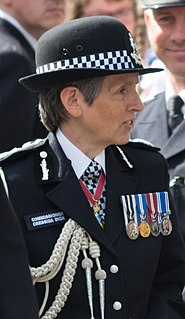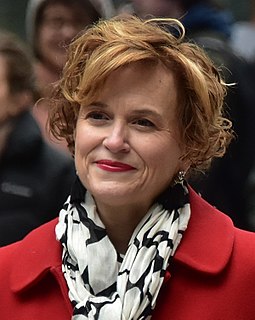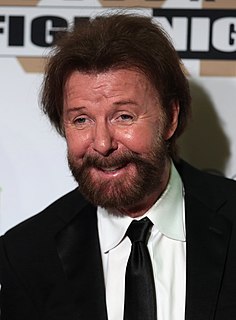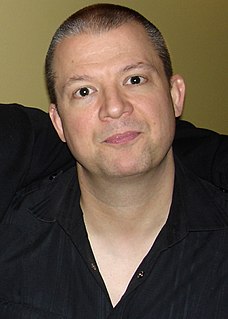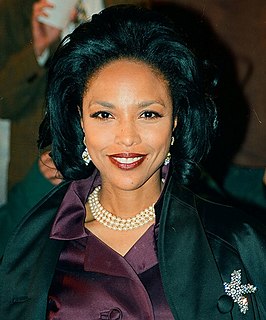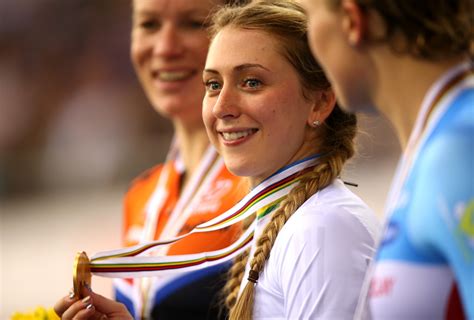A Quote by Ashton Kutcher
I think that when we start thought-policing people and idea-policing people, then that's crossing a line. And I think, you know, everybody's so afraid of this imaginary line of thought police that they forget their own personal safety.
Related Quotes
How do you think policing is in places like China, or North Korea? Whatever we experience, in terms of our policing, I also wanted to make known that the rest of the world suffers ten times more because of that power dynamic; because of the fact that there is no Posse Comitatus in other places which is what prevents in our country, or what is supposed to prevent the military from taking on a policing role of its own people.
In Baltimore they can't do police work to save their lives. Now because of Freddie Gray they're not even getting out of the car and policing corners - they're on a job slowdown, basically. Right now if the police stopped being brutal, if we got police shooting under control, and the use of excessive force, if we have a meaningful societal response to all that stuff, and the racism that underlies it, the question still remains: what are they policing, and why?
Most thoughtful people would agree that morality in the absence of policing is somehow more truly moral than the kind of false morality that vanishes as soon as the police go on strike or the spy camera is switched off, whether the spy camera is a real one monitored in the police station or an imaginary one in heaven.
Hazel had read enough books to know that a line like this one is the line down which your life breaks in two. And you have to think very carefully about whether you want to cross it, because once you do it’s very hard to get back to the world you left behind. And sometimes you break a barrier that no one knew existed, and then everything you knew before crossing the line is gone. But sometimes you have a friend to rescue. And so you take a deep breath and then step over the line and into the darkness ahead.
First and foremost, I want people to have a good read, because I want everything I write to entertain people. There are always different layers to the story, though, so if you want to think about social justice, or sexism or racism or homophobia, or really drill down into why the world is a better place when the police force looks like the people they are policing, then that's there, too.
Policing has to be done compassionately and consistently. You cannot police differently in Harlem than you're policing downtown. The same laws must apply. The same procedures must be employed. Certain areas at certain times may have more significant crime and require more police presence or more assertiveness, but it has to be balanced.
Chicago is where the whole idea of community policing began. It remains the - the best and the most comprehensive approach we have in changing the everyday conditions that breed crime and violence - and then breed mistrust. We have more work to do. We need better training to live up to the values and the principles of community policing.
When we look at cities across the country, Cincinnati, for example, where they have come under DOJ guidance with a consent decree, we see that, over time, there has been a transformation in the relationship between the police and the community, where now they have a partnership and true collaborative policing, co-policing, to make the community safer overall.
Police officers are the best of us. And the men and women, white, African-American, Asian, Latino, Hispanic, they put their lives on the line every single day. And let my say community policing is a great idea. It's worked in the Hoosier state. And we fully support that. Donald Trump and I are going to make sure that law enforcement have the resources and the tools to be able to really restore law and order to the cities and communities in this nation.

